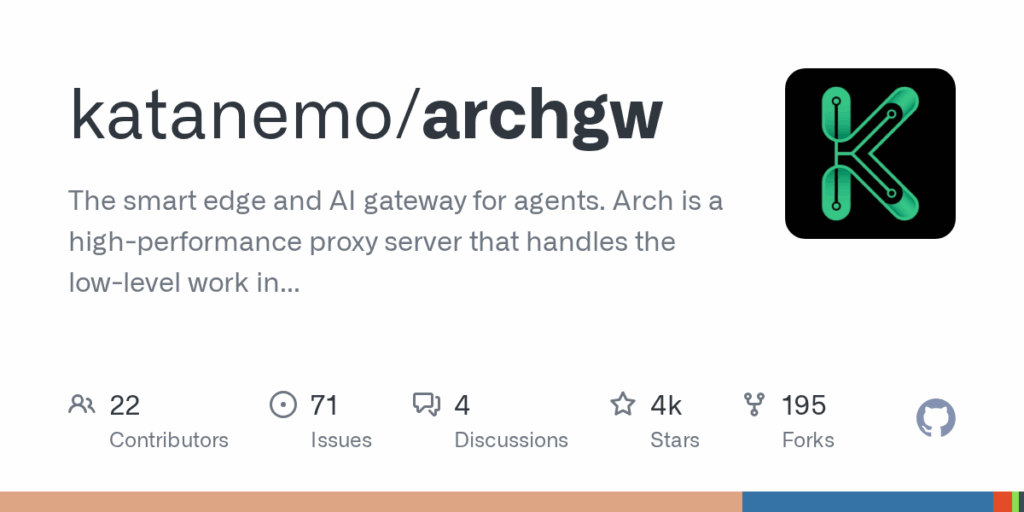archgw
Basic Information
Arch Gateway is a modular edge and AI gateway designed to act as a smart proxy server for agentic applications. The repository provides infrastructure that handles low-level plumbing for agents, including routing and handoff between agents, unifying access to different LLM providers, applying guardrails to inputs, clarifying vague user prompts, and converting prompts into API or tool calls. It is language and framework agnostic and is built to run alongside application servers as a containerized process on top of Envoy. The project includes a CLI, Docker and Docker Compose based deployment guidance, configuration via arch_config.yaml, quickstart examples and demos such as a currency exchange agent and a weather forecast agent. The repo also documents observability, debugging, and practices for running or hosting a purpose-built function calling model used in routing and function invocation scenarios.








